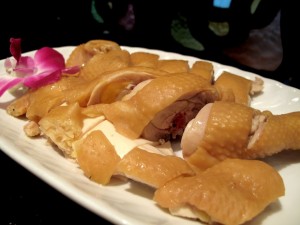The winners and losers of Hong Kong's bird-flu scare


HONG KONG — It was particularly bad timing for the discovery of a bird-flu-infected chicken.
But Hong Kong knows the drill. After a dead bird tested positive for avian influenza on Tuesday, authorities culled over 19,000 chickens from a wholesale poultry market. As a precaution, live chickens were suspended from being sold anywhere in Hong Kong for 21 days.
The mandate cut off the live-chicken supply for families that were about to celebrate winter solstice on Dec. 22, when Chinese traditionally get together for a big meal (think Thanksgiving without the days off).
The ones affected were not really the cooks. Some housewives did scramble to snap up the last batch of live chickens for sale at market after the ban was instated — and no, Hong Kong people are generally not too worried about catching bird flu. Others could easily choose frozen chicken — which is considered less tasty — for their feasts.
Indeed, some frozen chicken sold for three times its normal price.
The losers were live-poultry sellers that count on holidays and celebrations to make a killing, as it were, but this time around they had to miss out. But it’s not a complete loss for them: the government will compensate $4 for every 1.3 lb. of their culled chickens.
This was the first new case of bird flu in three years. The city has taken bird flu very seriously ever since the first ever outbreak among humans occurred locally in 1997 and led to six deaths and the culling of 1.5 million chickens. The virus had resurfaced on occasion, which is always met with the swift killing of those that might also be infected.
Secretary for food and health York Chow acknowledged at a news conference that the timing of the avian flu’s detection would cause a greater inconvenience for the public and losses for the poultry trade, but "to safeguard public health, we need to adopt decisive and effective measures to prevent and control the spread of the virus."
The government said it has run tests on samples taken from chickens, farms and retail stalls, all of which have come back negative for avian flu.
Photo: Vanessa Ko
This post was originally published on Smartplanet.com